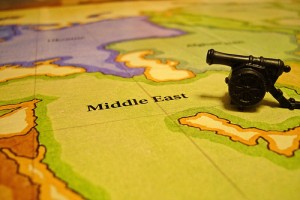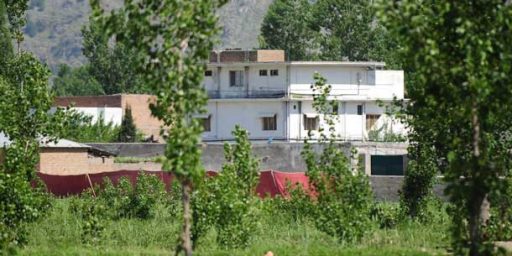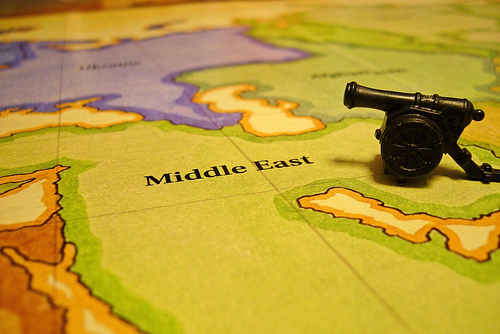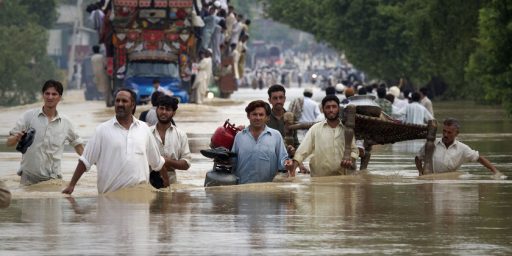Pulling Out: Debating Middle East Disengagement (Aff. Cross)

Question 1 (Finel): You write: “I believe the evidence speaks clearly: the increased U. S. engagement in the region has overall been a stabilizing force.” What is the precise benefit to the United States of this increased stability? Are American interests in the region more or less secure today as a result? Or is this purely a altruistic argument on your part?
Schuler: I won’t deny that my motives are partly altruistic but that’s not the only reason we should want stability in the Middle East. Avoidance of oil price shocks doesn’t just benefit the United States but every country that buys oil whether they’re in South America, Africa, or Asia. Some of the governments in these places are holding on very tenuously as it is. An oil price shock could send them over the edge. We recently saw risks of that in Pakistan.
Pakistan recently applied for a World Bank loan because of the high price of oil. The significantly higher price spike caused by an interruption in Gulf oil might well have sent them over the edge. That presents a very real direct security threat to us. The Pakistani government is bad enough at preventing terrorist training camps from operating in the country as it is; a failure of that government would make matters even worse. Additionally, our supply lines for Afghanistan run through Pakistan. A collapse of the Pakistani government would be a very bad thing for our troops there.
Repeat that in Central America, South America, and Africa and you’d aggravate the poverty and misery in the countries in those areas. People in poor, chaotic places can be driven to great lengths. They resort to piracy as in Somalia or drug production and trafficking as in Afghanistan. They go where they think they might find work or relief—here, France, Italy, the United Kingdom. That places strains on our health and educational systems among others, not to mention social stresses.
And people living in prosperous countries make better customers for American goods and services than people in poor, chaotic countries do. Improving security is a fine example of doing good while doing well.
Question 2 (Finel): You quote from Sayyid Qutb. What evidence can you produce to show that Qutbism is followed by anything more than a tiny sliver of the population of the Middle East?
Schuler: A recent Pew poll suggested that roughly 8% of Muslims living in the United States expressed opinions which I’d interpret as radical Islamist ones. The number of foreign-born Muslims, particularly Arabs, who expressed such views among the whole was somewhat higher. I wouldn’t be surprised if 10% of the population of the Middle East had such views. That’s tens of millions of people.
The membership of the Muslim Brotherhood is certainly estimated to be in the millions. I don’t think there’s any doubt that his teachings are very influential.
I’m not certain whether the absolute numbers are particularly important. There weren’t a lot of Japanese who believed that Japan should attack the United States sixty years ago and only a very small number actually took part in the attack. We engaged in total war against the Japanese anyway. My point is emphatically not that we should be engaging in total war but that a relatively small number of people can create a lot of misery.
Question 3 (Finel): How would you guarantee the security of “American tourists, American products, American students, and, especially, American businessmen”? Which of the security measures undertaken after the 1998 embassy bombings would you reverse in order to encourage greater contact between these groups and the people of Middle Eastern countries?
Schuler: It’s certainly a problem and I’m open to suggestions. I don’t know that I’m advocating reversing any of the post-1998 measures. I’m not advocating a sudden flood of Americans but a gradual increase. American businesses aren’t doing as much business as they could be in the Middle East and North Africa and real as opposed to perceived security concerns probably aren’t the most important reason for that.
Clearly, some places are riskier than others. Iraq would be pretty darned risky. However, to the best of my knowledge there’s only been one murder of an American in Jordan over the period of the last 20 years. There are all sorts of places in the Middle East and North African where American tourists and businessmen aren’t in considerably more danger than British or French tourists or businessmen and the British and French are doing quite a bit of business in the Middle East.
It would also help if there weren’t exaggerated and mistaken impressions given in our own media. For example, the early reports of the attacks in Mumbai last month emphasized that the terrorists were after Americans and Britons. Later reports tended to refute that. There’s never been a definitive answer to whether that was the case and our media accounts have left us with the impression that Americans were particular targets whether that was the case or not. That makes it hard to assess the actual risks.
The most recent Pew Survey of Global Attitudes found that people in other countries who had more personal exposure to America and Americans were also more likely to have a favorable attitude towards America and Americans. We aren’t going to improve our security situation by barricading ourselves within our borders. Ignorance and isolation are our enemies not our friends.






You think the US should continue to spend taxpayer’s money stabilizing the middle east, so that Pakistan can afford to subsidize gasoline for it’s citizens?
I’d be willing to bet that 8% of Christians or Jews living in the United States would express opinions I’d interpret as radical. I also notice that you didn’t specify that these views were violent, so perhaps you should clarify what you consider “radical”.
I don’t think Dr. Finel was advocating that, but rather that we should be a passive element in their lives. China is a good example of a country that has vast amounts of exposure in the middle east, but it is almost entirely passive in the lives of most of the population, giving them a very small fingerprint.
You could always go and read the poll. In this case it was the use of violence for political ends.
BTW, Michael, for more than a year following the earthquakes a while ago, the U. S. Navy was the primary healthcare provider in Pakistan. Can I conclude that you opposed that?
Right, should have done that first. 8% think that suicide bombing is “Often/Sometimes Justified”. While I agree with you that this is radical, I don’t see it as particular to their faith. I would be curious as to the percentage that feel that way in other religions.
I am okay with the US providing emergency aid in disaster response. I wouldn’t be okay if the ongoing policy of the US Navy was to provide health care to Pakistanis so that their government doesn’t have to.
Precisely.
Keep in mind the phrasing of the question – “Suicide bombing in defense of Islam“. But does “defense of Islam” mean to most of these people? It does not necessarily mean “defend the purity of Islam from even the existence of outside influences and choices such as that of the West, and take offensive action to end said influences.”
Dave — I’m looking at the following quote and I am left scratching my head on definitional and counter-factual grounds:
For your argument to work, the definition of price shock has to be fairly restricted (~30% increase in price from ~110 to 145 dollars per barrel, while neglecting the first seventy dollars in price increases) OR a counterfactual in which less US presence in the region produces more geo-political instability and deployment of the ‘oil weapon’ for geo-economic leverage of weak states such as Iran. That I think is a tough counterfactual to sustain.
Not picking on you Dave (I know your views on the Iraq war)
Hmmmm…. sounds familiar…. does history repeat?
But Dave, I asked you yesterday:
I never got an answer but I am sure it just got buried in the comments.